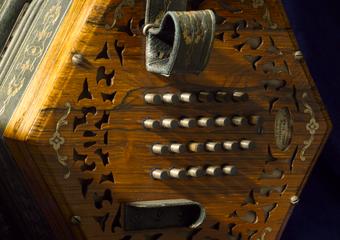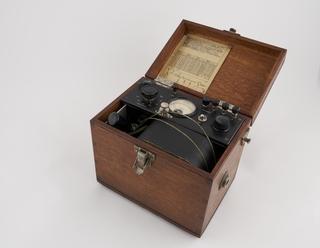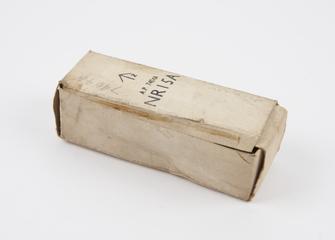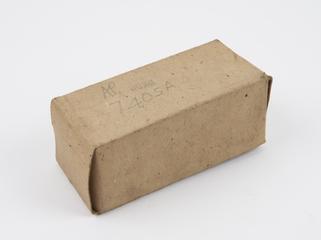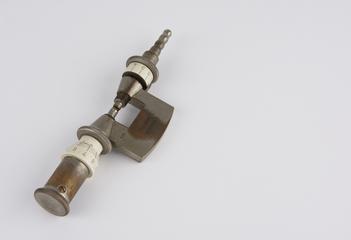
Set of eight tuning forks
- maker:
- Rudolph König
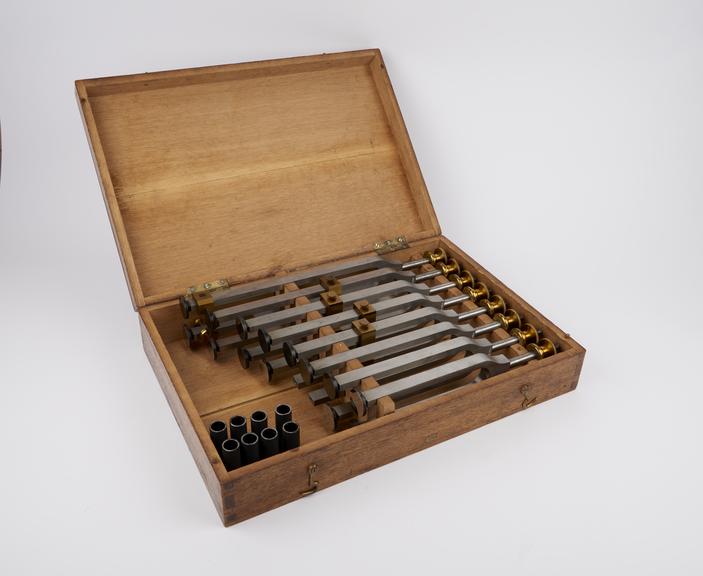
Set of eight tuning forks by R. Konig.
Set of eight tuning forks by R. König.
The invention of tuning forks is credited to John Shore, a trumpeter at the English court in the early 18th century. However, they only became scientific instruments a century later. Koenig was an instrument-maker and acoustical researcher who specialised in producing the very best tuning forks, to be used as frequency standards. These forks sound the eight notes of an octave. The lengths of the forks relate inversely to their frequencies, so the relationships of the pitches can be visualised when they are in the box.
Details
- Category:
- Acoustics
- Object Number:
- 1968-634
- Materials:
- brass (copper, zinc alloy), steel and wood
- Measurements:
-
box: 100 mm x 560 mm x 343 mm,
- type:
- tuning fork
- credit:
- Royal Naval College

